1458 Death at the Yatra Institute
Mindful of Murder
by Susan Juby
Toronto: HarperCollins Canada, 2022
$24.99 / 9781443464437
Reviewed by Carol Matthews
*
 There’s no time wasted getting to the murder scene in Susan Juby’s new mystery. The Prologue to Mindful of Murder gives a brief introduction to the victim, Edna Rodd, and by the fifth page we’ve watched her die a quick but relatively painless death, never noticing the figure watching by the bedroom door.
There’s no time wasted getting to the murder scene in Susan Juby’s new mystery. The Prologue to Mindful of Murder gives a brief introduction to the victim, Edna Rodd, and by the fifth page we’ve watched her die a quick but relatively painless death, never noticing the figure watching by the bedroom door.
It’s good to cut to the chase, though I must admit I was sorry not to see a bit more of Edna, the owner of the Yatra Institute, a New Age retreat centre located on one of British Columbia’s Discovery Islands. A toned and lean seventy-two-year-old, Edna loved herself and was both loved and hated by those who knew her. Aware of the insistence of her own ego, she envisions it as a cat to whom she can give “the metaphorical equivalent of a soft pat” before setting it aside. That’s an image that will stay with me.
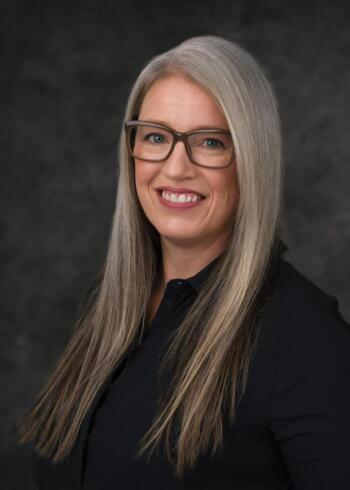
After a three-month silent self-retreat, Edna had decided on a plan for the future of the Yatra Institute but has died before being able to announce or implement it. However, she left her lawyer instructions that her former employee, Helen Thorpe, should carry out her wishes. Previously a Buddhist nun, Helen had worked at the Yatra Institute as a meditation teacher and lodge manager. Helen has now just graduated from the North American Butler Academy and, when she returns to the Institute, she brings along two of her fellow graduates, Gavin and Murray. Three butlers at a retreat centre!
In an interview on CBC, Juby said it occurred to her that a butler and a Buddhist, both tending to be centred and calm, would make a wonderful combination for an amateur sleuth. Indeed it does! Helen has a compelling presence that can only be described in one word: Helen. She’s able to maintain composure in the most alarming situations with the thought Never again this moment.
If you’ve been to the Hollyhock Leadership Learning Centre on Cortes Island, which Juby acknowledges as the inspiration for the fictional Yatra Institute, some of the scenery — not to mention the characters and community — may seem familiar. On arrival by float plane to Sutil Island, one of the Discovery Islands on the Salish Sea, Helen is greeted by Tanner who, Sutil-born and raised, is both beautiful and unkempt. When Helen asks if he’s looking for work, he replies “Nah, I’m fuelling up boats and planes here at the dock a couple of days a week and taking out the odd fishing charter. I wouldn’t want to lose my work-life balance by getting another gig.” This fits for the island, and Helen reflects that Tanner is “practically a workaholic compared to many of Sutil’s residents.”
Sutil Island is picturesque and the Yatra Institute, an old cedar lodge surrounded by enormous evergreens some of which had been “standing sentry” for two hundred years, has “the air of a building that would last forever.” But now there are strange undercurrents of energy around it, and the atmosphere becomes stranger as Helen begins her assignment of determining which of the motley collection of relatives is best suited to taking over management of the institute. The candidates are to stay at the institute for ten days during which time they will take courses in flower arranging, dance and meditation. As well, Helen will assess their paramis (things like generosity, equilibrium and discernment) and their brahmaviharas (kindness, joy and compassion.)
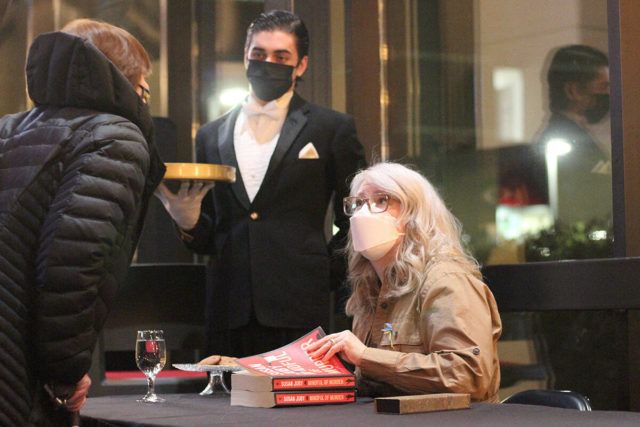
The candidates are unattractive in quite different ways. The eldest, Wills, is a leathery, red-faced man who drinks heavily and tries to bribe the staff to bring him drugs. His brother Tad, a white-blond man with strange blue eyes that look like they belong on a sled dog or a goat, has a superior manner and is given to withering comments. Their cousin Whitney, the slim, quiet offspring of a domineering mother, is a teetotaling vegetarian who reads Thich Nhat Hanh and sneaks around the stairways. Rayvn Wildwood, the youngest of the group, is a black-sheep great-niece who is unknown to the others; she wears full camouflage gear with a bustier that reveals a lot of cleavage, has pointy black nails, and carries a black, physician’s bag.
After meeting the cousins Helen reflects that it will be a long ten days and that, if asked, she’d try to keep them all as far away from the Institute as possible. A reader might agree, and might suspect any one of them to be capable of murder.
Despite complaints from Wills and Tad, conditions for the assessment period are not arduous. Flower arranging involves “fierce seeking” to find your inner bloom, but the flowers are always gorgeous. Devi dance and Kundalini-inspired stretches, taught by the powerful Scottish instructor Wayfarer, have everyone running and leaping and dumping their inhibitions “like backpacks after school.” Helen’s meditation classes at the start and end of each day offer relaxation techniques which often cause the students to drift off to sleep. Chef Leticia’s fabulous vegetarian meals (Fanny Bay oysters wrapped in thin strings of crispy potatoes and salads of shredded dark wakame marinated in ginger), are served on hand-painted crockery from the Faiencerie de Glen in the Loire Valley.
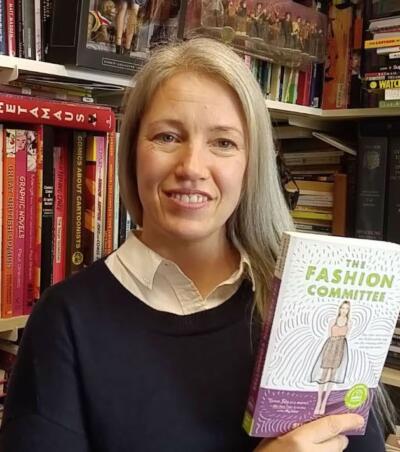
Most of the events are recounted by a third-person narrator and focus on Helen’s activities and observations, but there are also short first-person narratives in the voices of one of the butlers and two of the cousins, and there are several accounts from Nigel, an orange-haired local youth hired to help the butlers. When he arrives, Nigel is dressed in a mixture of green, yellow, red and checked clothes that are too small and he seems to have bathed in an overpowering cologne which has a “high note of rotten citrus, a middle note of pressure-treated lumber, and a bottom note of petrochemical slurry.” For some reason, Helen can’t help liking him and, by the end of the novel, Nigel has given up the cologne, is growing out his hair, and begins to look “practically normal” in his dark denim apron and white shirt.
Nigel isn’t the only person to have been changed by the Yatra Institute. Ultimately, each of the characters has become more aware and almost a bit likeable. It’s possible to feel compassion for all of them, even for the murderer!
As Helen observes, the Yatra Institute is a special place. “It changed people.”
Author of many acclaimed novels for young and adult readers, Juby’s most recent book for adults, Republic of Dirt, won the Leacock Medal for Humour. Readers will find her new book to be an intriguing mystery that makes you think, makes you laugh, and may even make you want to go to Hollyhock to soak up the ambience and study mindful meditation.
*
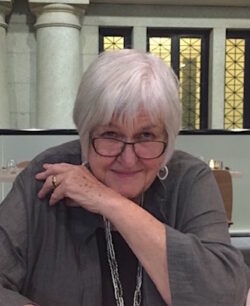
Carol Matthews has worked as a social worker, as Executive Director of Nanaimo Family Life, and as instructor and Dean of Human Services and Community Education at Malaspina University-College, now Vancouver Island University (VIU). She has published a collection of short stories (Incidental Music, from Oolichan Books) and four works of non-fiction. Her short stories and reviews have appeared in literary journals such as Room, The New Quarterly, Grain, Prism, Malahat Review, and Event. Editor’s note: Carol Matthews has also reviewed books by Charles Demers, Susan Sanford Blades, John Vigna, Hiromi Goto, Anita Lahey, Ivan Coyote, and Tamara Macpherson Vukusic for The British Columbia Review.
*
The British Columbia Review
Publisher and Editor: Richard Mackie
Formerly The Ormsby Review, The British Columbia Review is an on-line journal service for BC writers and readers. The Advisory Board consists of Jean Barman, Wade Davis, Robin Fisher, Cole Harris, Hugh Johnston, Kathy Mezei, Patricia Roy, Maria Tippett, and Graeme Wynn. Provincial Government Patron (since September 2018): Creative BC. Honorary Patron: Yosef Wosk. Scholarly Patron: SFU Graduate Liberal Studies.
“Only connect.” – E.M. Forster
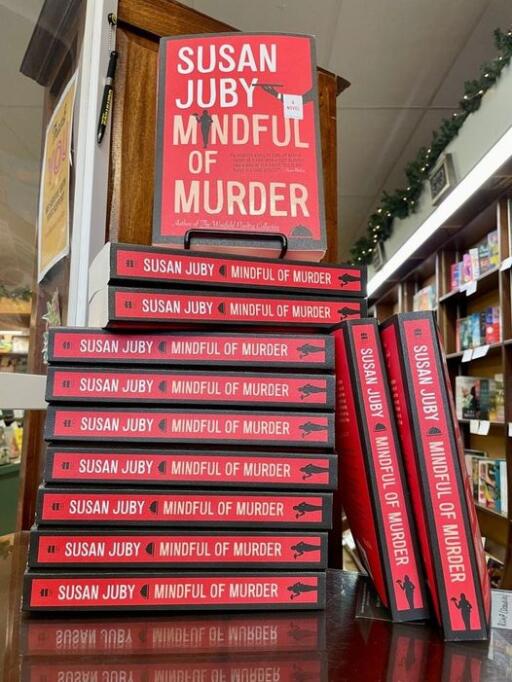
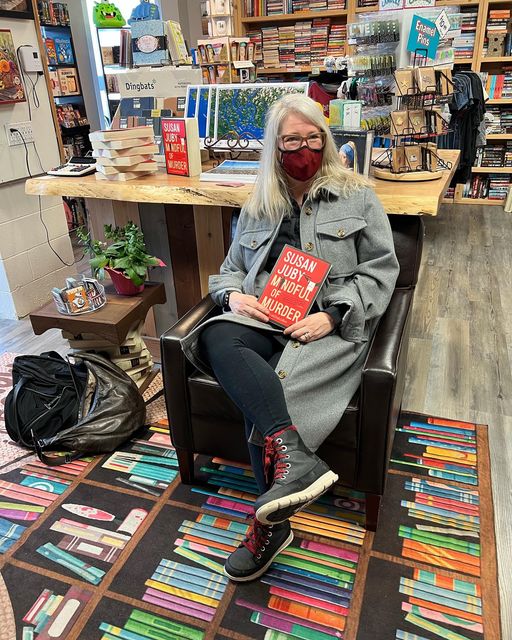






























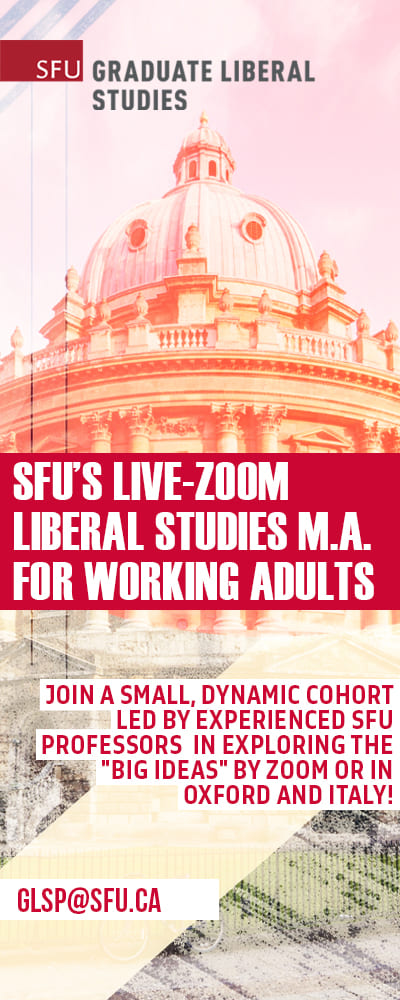
5 comments on “1458 Death at the Yatra Institute”